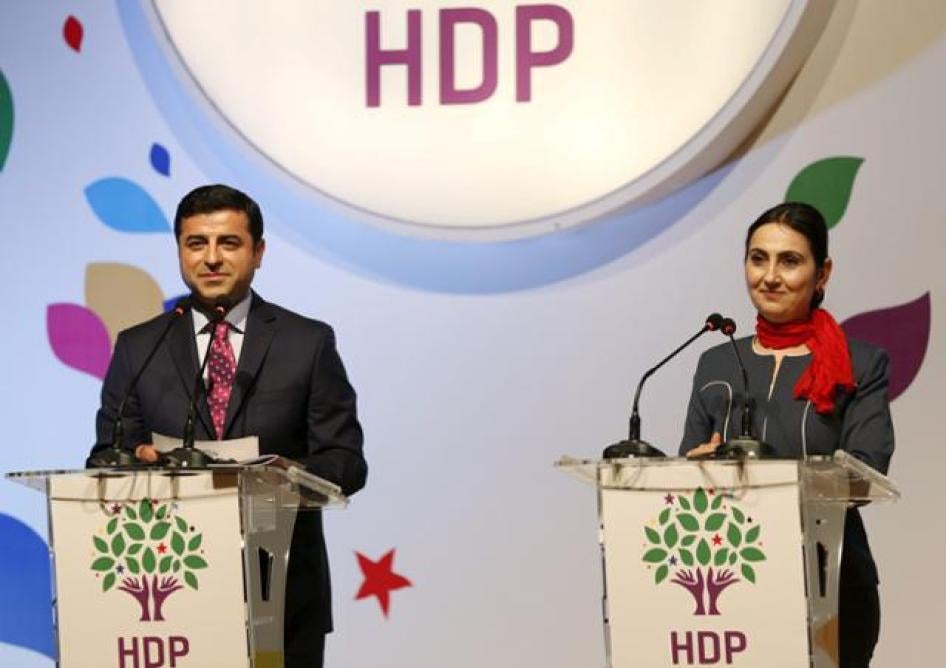(Istanbul) – The November 4, 2016 court decision to place the leaders and seven members of the opposition Peoples’ Democratic Party (HDP) in pretrial detention shows blatant disregard for the right to political representation and participation for millions of voters. It also demonstrates the failure of a less-than-independent judiciary to curb the illegitimate overreach of a government crackdown against its opponents.
The arrests capped a week of intense crackdown by the Turkish authorities, including the detention of the editor, journalists, and managers from the independent newspaper Cumhuriyet, the closure of the country’s remaining Kurdish media, and the jailing of elected mayors in the southeastern city of Diyarbakir. On November 5, a court ordered the pretrial detention of the Cumhuriyet editor and eight journalists and managers from the paper over alleged terrorism links.
The nine jailed members of parliament from the Peoples’ Democratic Party (HDP) include the party’s two leaders, Selahattin Demirtaş and Figen Yüksekdağ. Police detained them at their homes in the middle of the night on November 4 on the grounds that after they had not responded to summons to appear before prosecutors in different ongoing investigations against them that began after the parliament voted in May to lift their parliamentary immunity.
All the jailed parliament members are accused of a variety of terrorist offenses ranging from spreading terrorism propaganda to being a leading member of the armed Kurdistan Workers’ Party (PKK). Three other HDP members of parliament were detained and then released and face a ban on overseas travel, and there are detention warrants for two other members who are currently overseas.
Parliament moved to lift the immunity of 138 members of parliament in May with a constitutional amendment passed by 376 votes in the 550-member body. Along with lifting the immunity of 50 of the 59 members from the Peoples’ Democratic Party, the move applied to 51 members from the main opposition People’s Republican Party (CHP), 27 from the ruling Justice and Development Party (AKP), 9 from the far-right Nationalist Action Party (MHP), and one independent. The government contends that since it lifted the immunity of members of other parties, its vote was not a discriminatory measure targeting only the People’s Democratic Party, but only its members have been targeted by law enforcement officials.
Effectively closing down parliamentary politics for the Kurdish political movement in Turkey carries grave risks for the human rights of Kurds and all other citizens in Turkey and the country’s democracy.








